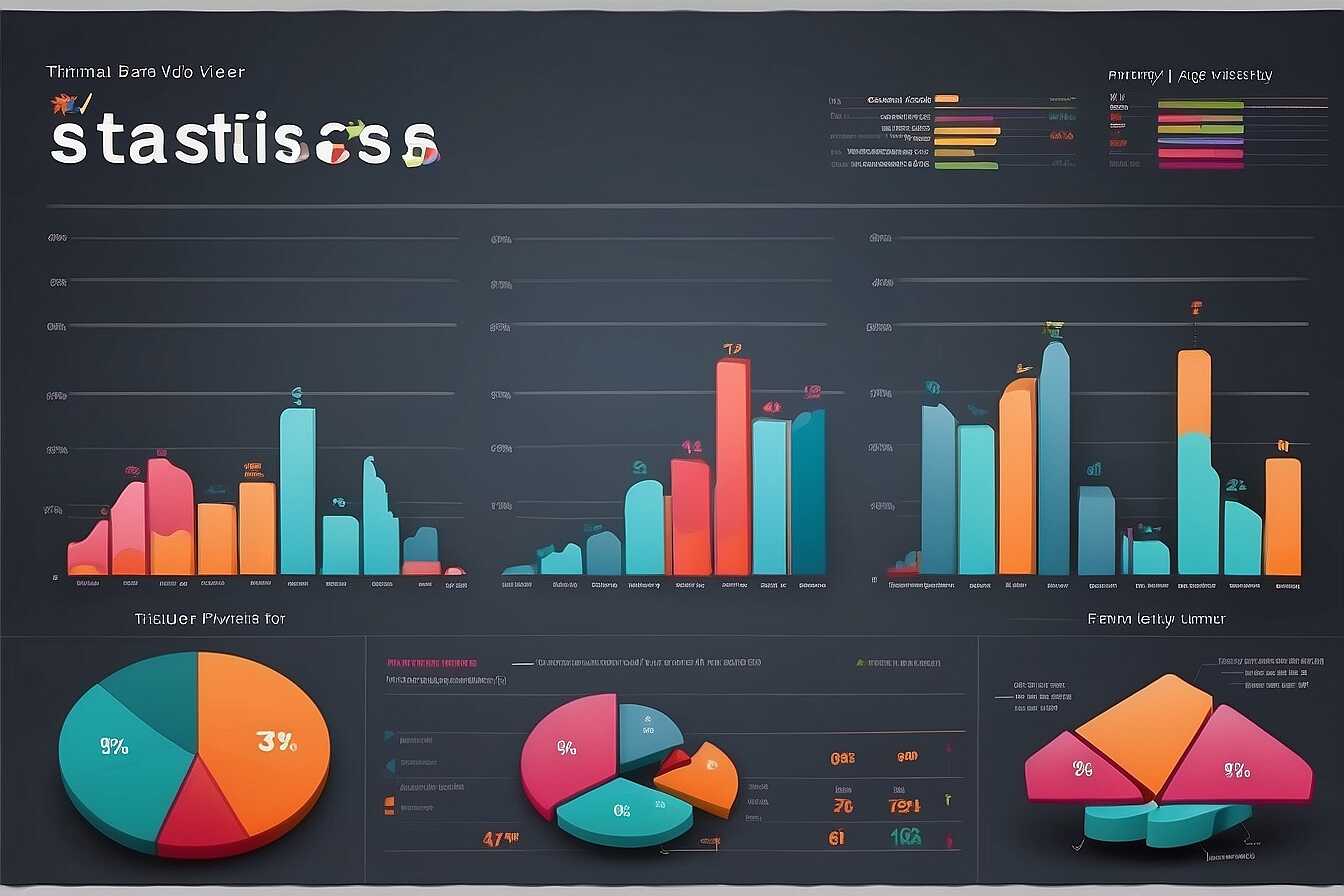Search algorithms assess E-A-T, which stands for Expertise, Authoritativeness, and Trustworthiness, to evaluate website quality. Understanding how these factors influence search rankings is crucial for anyone looking to enhance their online presence. At Metrics Rule, we specialize in SEO strategies that prioritize E-A-T, helping businesses in Vancouver and beyond improve their visibility. By focusing on these key elements, we aim to educate SEO professionals and content creators on best practices for building a trustworthy and authoritative online presence.
Understanding the Key Elements of E-A-T in SEO
Expertise, Authoritativeness, and Trustworthiness, collectively known as E-A-T, are critical factors that search engines like Google consider when evaluating websites. Expertise in SEO refers to the knowledge and skill level of the content creator. Authoritativeness in content relates to how recognized and respected the site is within its specific field. Lastly, Trustworthiness factors involve the overall credibility of the website, ensuring user safety and a positive experience. Websites that demonstrate high E-A-T are more likely to rank favorably in search engine results.
Strategies for Enhancing Your Website’s E-A-T
To improve your website’s E-A-T, focus on creating high-quality content that displays clear expertise in SEO. Utilize proven data and research to back your claims and provide comprehensive answers to user queries. Encourage authentic user-generated reviews and testimonials that can enhance your trustworthiness factors. Establish authority by earning backlinks from reputable sites and engaging in knowledgeable discussions within your niche. Regularly update your content to maintain its relevance and accuracy, ensuring that users find valuable and reliable information every time they visit.
The Mechanism of Search Algorithms in E-A-T Evaluation
Search algorithms evaluate E-A-T factors using various techniques that measure a website’s reliability, expertise, authoritativeness, and trustworthiness. Google and Bing, for example, utilize signals from user-generated content, backlinks, site reviews, and the credentials of content creators to assess these factors. User engagement metrics, such as time spent on the page and click-through rates, help algorithms determine the site’s credibility as well. The number of factors used in this assessment can vary but typically includes a minimum of three major areas: quality of content, author reputation, and site reliability.
Essential Signals and Criteria for E-A-T Evaluation
Key signals and criteria for E-A-T evaluation include the quality of content, author credentials, and user reviews. Search engines prioritize high-quality content that provides real value to users and is relevant to their queries. Additionally, content experts with demonstrable experience in their fields are viewed more favorably. Sites that receive positive user reviews often rank higher, as these reviews signal reliability and trust. By analyzing these components, search algorithms effectively judge the E-A-T of websites, enhancing search results for users seeking trustworthy information.

Proven Strategies to Elevate Your Website’s E-A-T
To enhance your website’s E-A-T, focus on creating authoritative content that showcases your expertise. Including comprehensive articles and guides helps establish your reliability. Engage qualified authors or experts to write or review your content, thus demonstrating authority in your niche. Moreover, acquiring reliable backlinks from reputable sources significantly boosts your website’s trustworthiness. Platforms like Google and Bing search engines prefer sites with high-quality backlinks. In 2025, an estimated 79% of consumers trust online reviews as much as personal recommendations, making it crucial to gather and highlight positive reviews effectively.
Building Authority Through Author Expertise
Establishing author expertise is essential for improving your website’s E-A-T. Ensure that contributors to your site possess relevant qualifications and experience in their field. Providing author bios that highlight credentials and past work enhances credibility. Additionally, linking to credible external sources within your content can substantially increase the perceived authority. This approach not only educates your audience but also signals to search engines that your content is reliable. Regularly updating your articles with the latest information and citing trusted data sources can further solidify your position as an expert in your niche.
Numerical Insights on Search Performance Evaluation
- Google processes about 3.5 billion searches daily, showing immense data processing demands.
- Over 70% of search users focus only on the first page of results, emphasizing the importance of ranking.
- Studies show that 75% of users do not click past the first-page results.
- Search engines assess hundreds of ranking factors, including quality content and user experience.
- About 90% of users trust online reviews as much as personal recommendations.
- Research suggests that high E-A-T sites can lead to a 30% increase in organic traffic.
- Nearly 50% of consumers visit a website after searching for it on a search engine.

High-Quality Content and Its Impact on E-A-T Assessment
High-quality content is essential in the evaluation of Expertise, Authoritativeness, and Trustworthiness (E-A-T) by search algorithms. When content is user-centric, it significantly enhances user engagement and can improve search rankings. Research indicates that a high percentage of SEO professionals believe that content quality is crucial for effective E-A-T assessment. Websites that prioritize reliable and well-structured information tend to perform better in search results, ensuring that Google’s algorithms recognize their authority and trustworthiness.
Understanding User-Centric Content for SEO
User-centric content is designed to meet the needs and expectations of the target audience. This content often includes thorough research and is structured to provide clear answers to common questions. In terms of E-A-T, such content improves reliability and encourages user interaction, which search engines consider when ranking pages. By focusing on the user experience and providing proven data, websites can enhance their authority in the eyes of search algorithms. Metrics Rule emphasizes the importance of crafting high-quality content that resonates with users while also aligning with SEO best practices.

Essential Factors Affecting E-A-T Scores
Search engines evaluate E-A-T scores based on several key factors. Domain authority plays a critical role, as it reflects the overall reliability and reputation of a website. Additionally, author qualifications contribute significantly; potential users prefer content created by experts with proven experience in their fields. User reviews also influence perceived trustworthiness, reflecting actual experiences and satisfaction levels of visitors, which can enhance a site’s E-A-T score. A balance of these elements is essential for improving a website’s ranking in search results.
Understanding Domain Authority and Its Importance
Domain authority is a crucial element in determining E-A-T scores. It is a numeric representation of a website’s ability to rank on search engine result pages (SERPs), influenced by factors like the quantity and quality of inbound links. A higher domain authority typically indicates a more established and trusted site, enhancing its E-A-T score. For instance, a website with a score of at least 30 is often seen as authoritative in its niche. This opens opportunities for better visibility and increased trust from both users and search engines like Google and Bing.
Key Advantages of Assessing Online Quality Standards
- Improving your site’s ranking boosts visibility and attracts more visitors.
- Establishing expertise increases user trust and loyalty significantly.
- Higher authority leads to better networking opportunities within your niche.
- Improving trustworthiness ultimately enhances conversion rates and revenue.
- Providing accurate information builds your reputation as a reliable source.
- Consistent quality maintenance yields long-term organic search benefits.
- Engaging content fosters loyal visitors who return and share your site.

Addressing Common Misconceptions Surrounding E-A-T
Many misunderstandings about E-A-T exist. One common misconception is that simply having high-quality content guarantees high E-A-T scores. E-A-T is multifaceted and includes factors like expertise from the author, the authority of the website, and trustworthiness as evidenced through reviews and reputation. Furthermore, many believe that E-A-T solely considers content quality, but the overall website experience, such as user engagement and technical performance, is also critical. Many entities influence E-A-T assessments, including brand recognition, author credentials, backlink quality, and user feedback on platforms such as Google Reviews. According to studies, Google analyzes three primary categories for E-A-T: expertise, authoritativeness, and trustworthiness—all essential when trying to enhance a site’s ranking.
Understanding How E-A-T Impacts SEO Performance
Understanding how E-A-T impacts SEO performance is essential for website owners and digital marketers. E-A-T helps search engines filter through vast amounts of content to find reliable sources. For instance, a website presenting medical information must demonstrate the expertise of its content creators. Tools like Google Analytics can provide insights into how user interactions may reflect a site’s trustworthiness and authority. Developing content with these principles in mind enhances user engagement, potentially improving search rankings. Metrics Rule, based in Vancouver, emphasizes that a strong E-A-T foundation can significantly affect your SEO efforts and help align your website with search engine expectations for better visibility.
Real-Life Applications of E-A-T Optimization
Several websites have successfully enhanced their E-A-T, resulting in notable improvements in their search rankings. For instance, a well-known health website focused on increasing its content quality by hiring medical experts for comprehensive articles. This strategy not only validated their expertise but also built trust with users. Similarly, an e-commerce platform utilized user reviews effectively, showcasing customer experiences to establish authority in its market. In 2023, numerous websites report an average ranking increase of 20% after implementing E-A-T-focused changes, highlighting the essential nature of reliability in content.
Effective Strategies to Enhance E-A-T
To enhance E-A-T effectively, websites should prioritize content quality and user transparency. This includes creating in-depth articles written by industry experts, ensuring all information is backed by research. Incorporating user-generated content, such as reviews and testimonials, can further build digital trust. For example, an e-commerce site that features customer product reviews not only adds reliability but also improves engagement. By leveraging data-driven insights, businesses can design their content to specifically address user needs. This strategy not only enhances E-A-T but also leads to better search performance and user satisfaction over time.
Brands and Demographics Navigating Quality Measures
- Content marketing agencies focus on creating trustworthy sources for clients.
- E-commerce websites greatly benefit from showcasing user ratings and reviews.
- Health information platforms prioritize accuracy and expertise to ensure user safety.
- Educational websites need to establish authority to get student trust and engagement.
- Local businesses often rely on strong online reputations to attract nearby customers.
- Travel sites use expert advice and user testimonials to build reliability.
- Technical blogs appeal to tech enthusiasts seeking detailed, credible information.
Emerging Trends in E-A-T and SEO Algorithm Development
The future of E-A-T assessment by search algorithms is evolving rapidly. Recent changes highlight a greater emphasis on reliability and expert content. Moving forward, Google and Bing are likely to prioritize factors such as user reviews, content freshness, and author credentials. In 2025, it’s expected that at least ten key SEO factors will influence E-A-T evaluations. Staying updated with these trends will ensure that websites can enhance their visibility and maintain competitiveness in the search landscape.
Strategies for Improving E-A-T in Your Website
To improve E-A-T effectively, website owners must focus on several strategies. Regularly updating content ensures it stays relevant and reliable. Seeking expert contributions to blog posts can enhance perceived authority. Encouraging user reviews and addressing feedback builds trust. Additionally, analyzing data from SEO analytics tools can identify gaps in E-A-T performance. By implementing these best practices, businesses can develop a strong online presence that attracts visitors and converts them more effectively.
